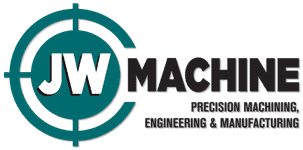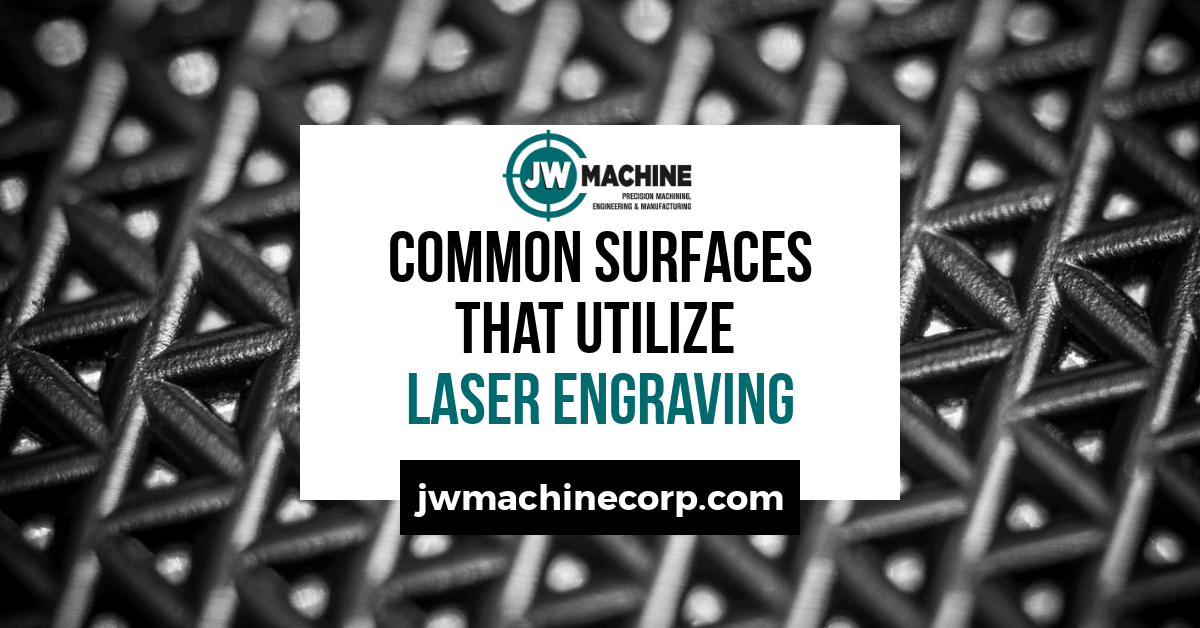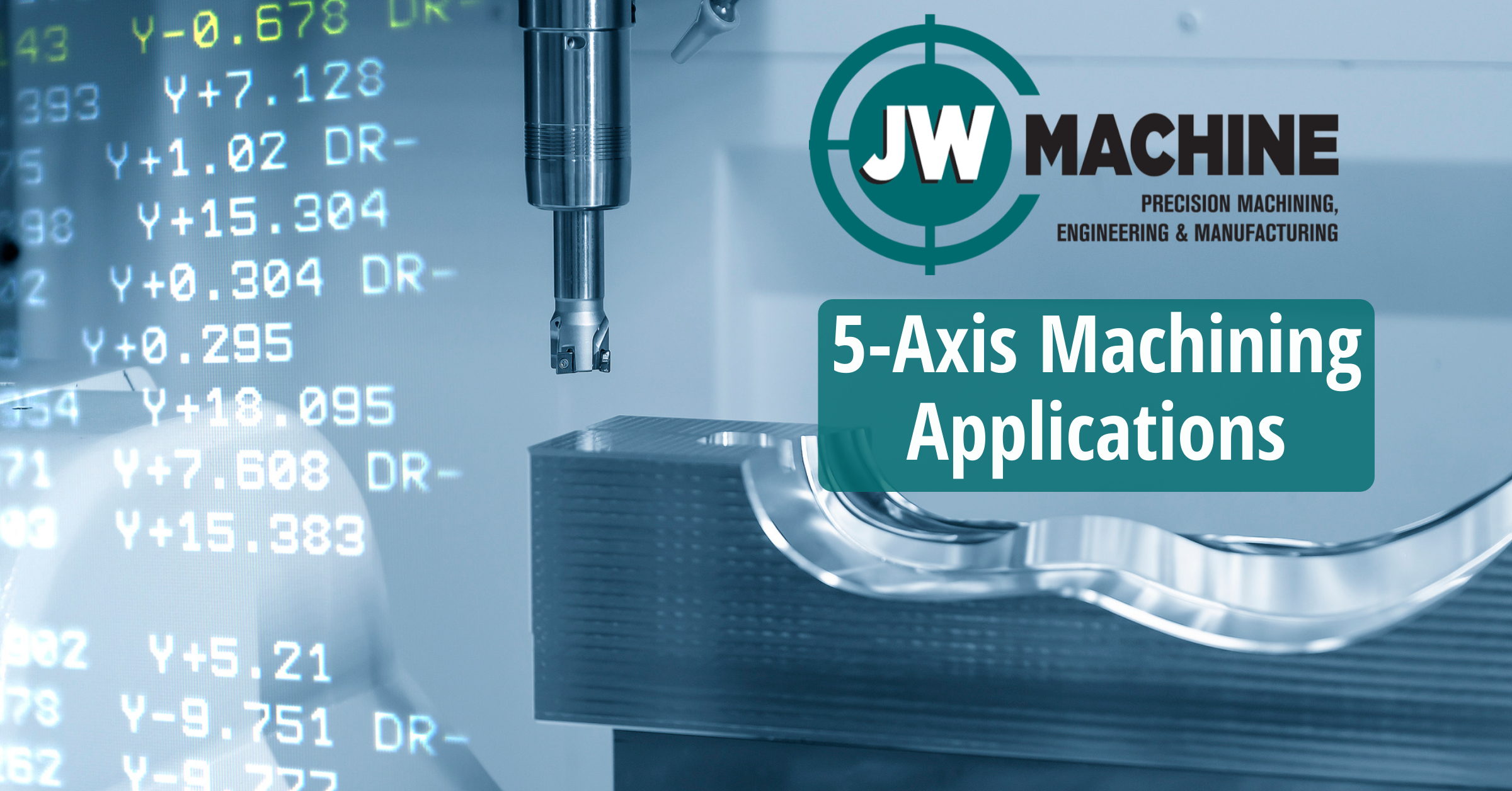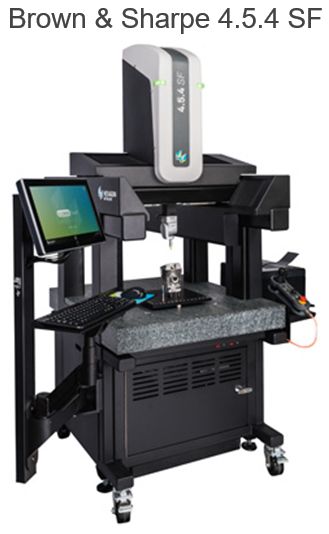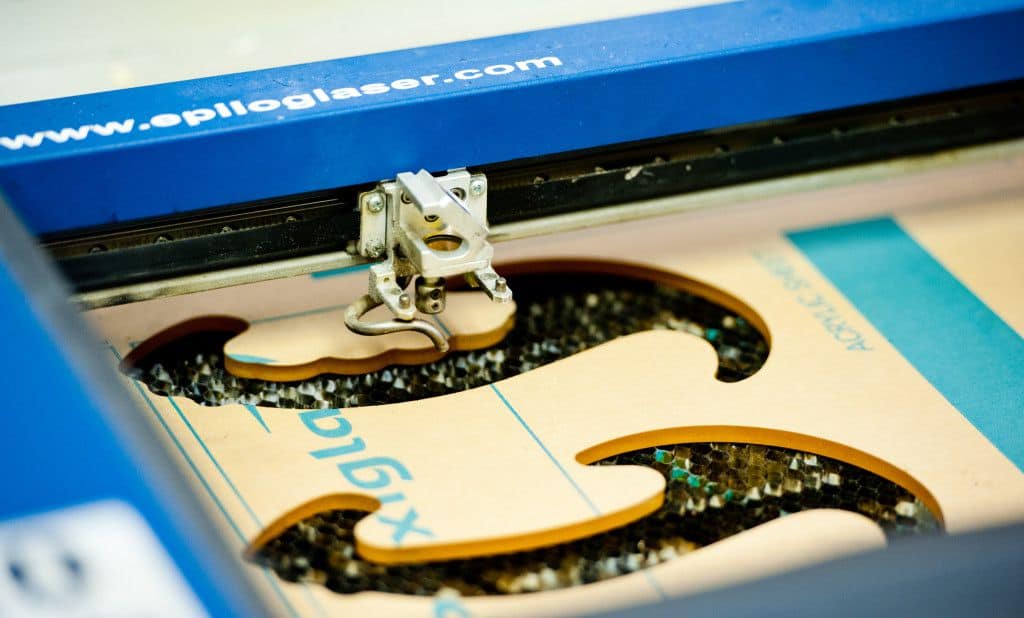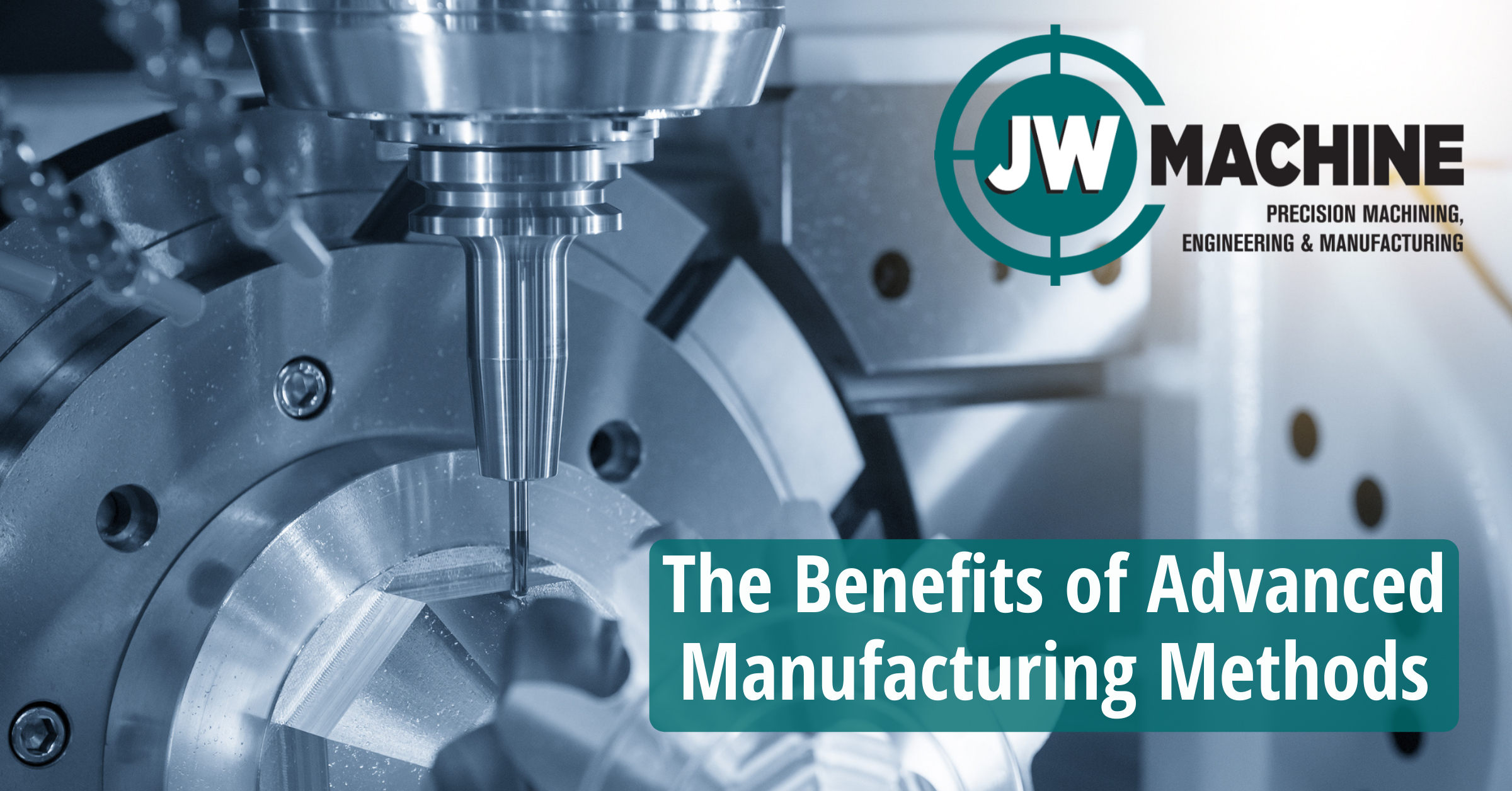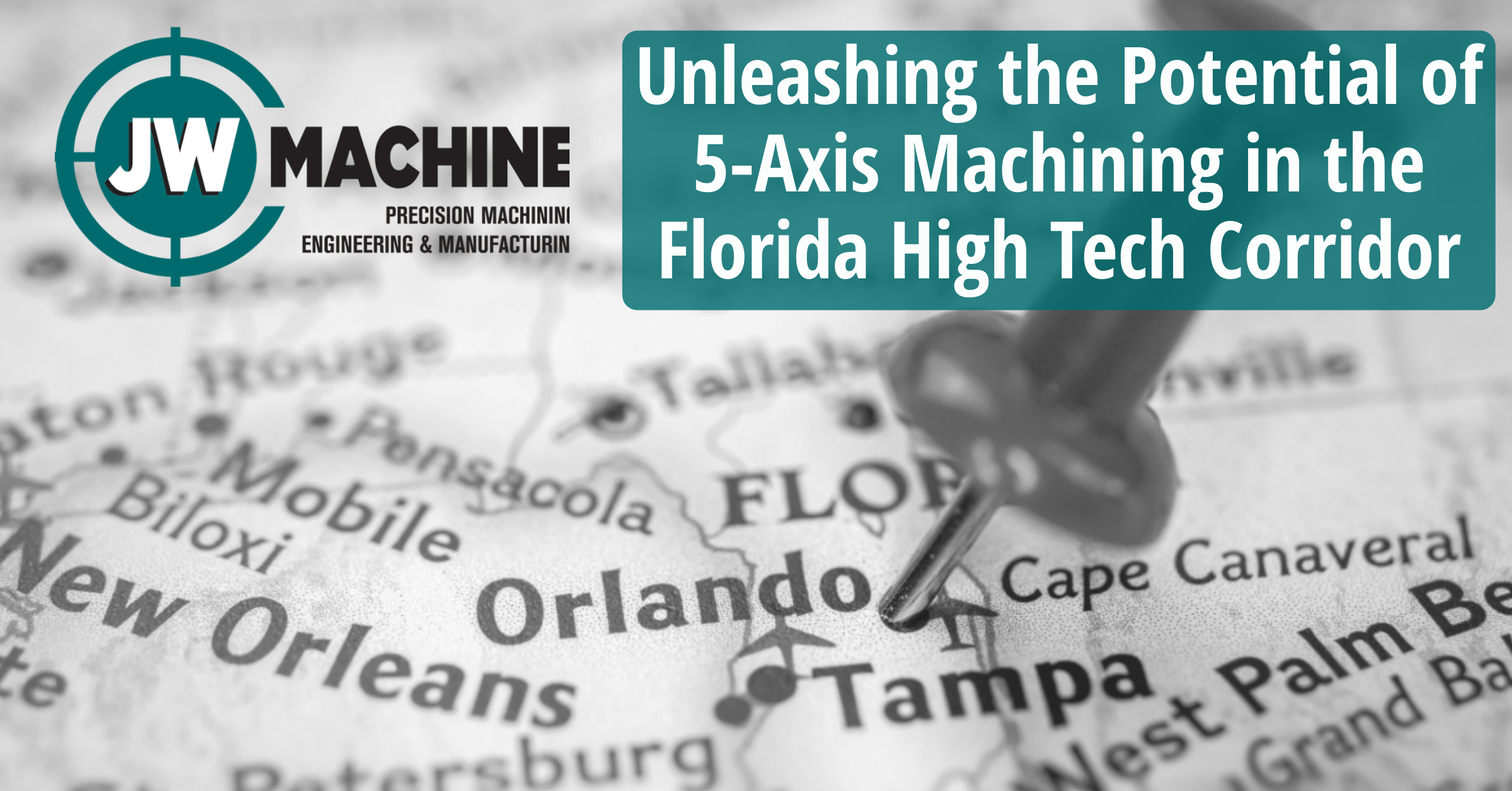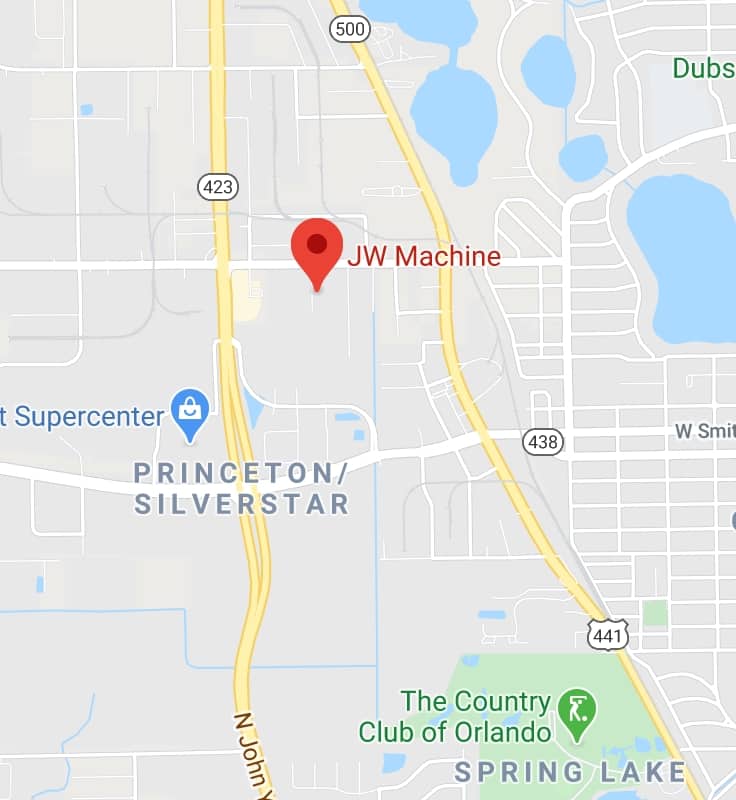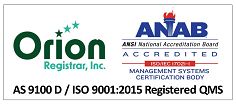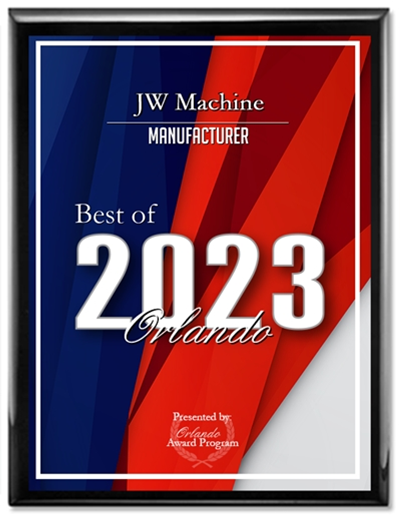We discussed milling turning and laser engraving in the aerospace industry in previous articles. Industries in addition to aerospace that commonly utilize laser engraving include automotive, medical, semi-conductor, amusement, defense, telecommunication, photonics, high performance racing and simulation components. This article will discuss some of the types of surfaces that are conducive to laser engraving.
First, let’s define laser engraving. Laser engraving leaves a deep, clear and permanent impression on the surface of a part or component. It is often used for bar codes, unique identifiers and serialization of parts. Laser engraving is a subtractive process so it actually removes material from the surface without damaging the part.
One type of surface that is often used in laser engraving is metal. Metals that are conducive for laser engraving include brass, stainless steel, mild steel, galvanized steel, copper, pewter, titanium and aluminum.
Metals are the most common surfaces that utilize this process. However, laser engraving is perfect for a variety of surfaces including hard stone such as granite and marble, plastic, ceramic and rubber.
JW Machine offers a variety of precision CNC machine shop services including laser engraving, laser cutting, prototypes to production manufacturing, contract manufacturing, milling turning, small part machining and more. If you are looking for a CNC machine shop that is experienced and focuses on quality, look no further. We work with industries and companies from all over the country. Regardless of where you are located, JW Machine can help. Give us a call today.






